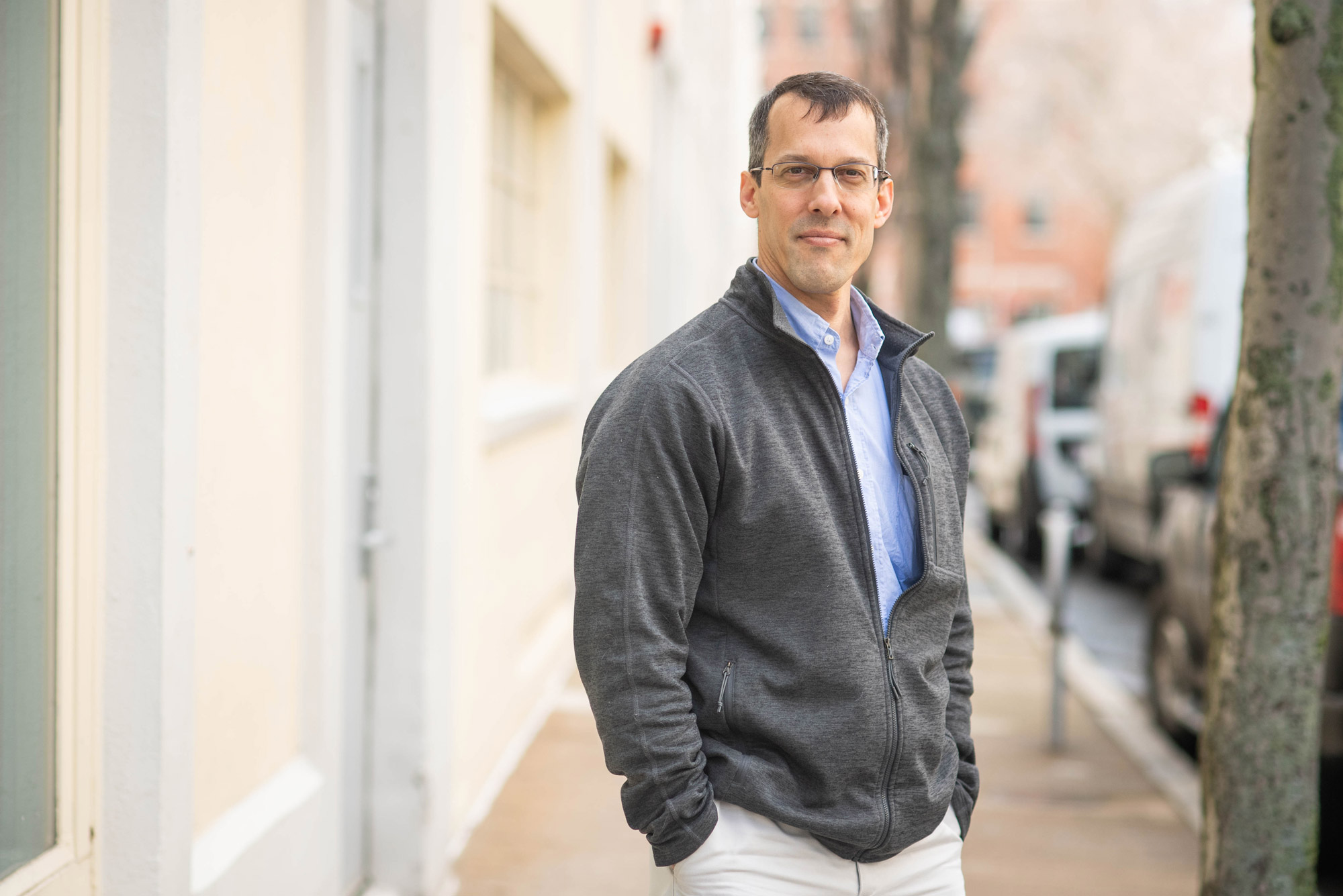POV:建模告诉我们会发生什么。 我们的选择决定将会发生什么。

Eric Kolaczyk is director of Boston University’s Rafik B. Hariri Institute for Computing and Computational Science & Engineering. He and other scientists have developed a mathematical and computational model of BU’s campus to guide the University’s reopening plan and be used as a tool to identify any future signs of uncontrolled COVID-19 spread.
POV: Modeling Shows Us What Can Happen. Our Choices Determine What Will Happen.
“The most fundamental aspects of COVID are quite dependable: without precautions, infected people will infect other people”
People all over the world have been working ceaselessly to help our global society get through the current pandemic. My own small contribution for the past few months has been to spearhead a team at Boston University responsible for mathematical modeling and simulation to inform the reopening of the University in an appropriate manner for the fall 2020 semester. It has been a task simultaneously exhausting and invigorating, inspiring and humbling. It has also been just plain sobering.
In a nutshell, as reported here, our work supports the conclusion that there is a reasonable path forward for reopening BU this fall while containing COVID-19 infections at levels comparable to the rest of the Greater Boston area. Our efforts even suggest we can manage if things get somewhat worse in the Boston area as a whole. But, ultimately, these are just possibilities, not promises. 它们取决于我们个人的选择,才能成为现实。
In modeling, you make assumptions. We made three types of assumptions in this exercise, about:
- the types of contacts people will have;
- the way COVID-19 will propagate as a result of those contacts; and
- the interventions we will employ to control that propagation.
The second set of assumptions is about the disease itself. And although there is much we still don’t know about this disease, there is a substantial amount that we do know and which can be reliably incorporated into a model. On the other hand, the first and third sets of assumptions are most fundamentally about our behavior. Those are the ones that have kept me up at night.
Those assumptions boil down to expectations of the BU population. Expectations that we will collectively and individually act responsibly. Expectations that some of the world’s brightest students, faculty, and staff will make choices consistent with an overwhelming amount of experience and science. Specifically, expectations that we will attest when we feel sick, get tested when we are supposed to, wear masks, physically distance, and so on. And expectations that we will make those same right choices over and over again, for as long as it takes, until we all get through this—together.
By this point, we surely have more examples than should possibly be necessary to see how individuals not making the right choices can quickly mess things up for everyone. There is the reopening some months ago of many states, long before science would have advised to do so, creating the biggest producers of COVID cases currently in the United States. And most recently, there is the abrupt change in plans at universities like Notre Dame and the University of North Carolina, in the face of outbreaks in just their first week after reopening. Outbreaks stemming from large gatherings where students disregarded standard expectations around gathering sizes, face masks, and physical distancing.
To reiterate, the most fundamental aspects of COVID are quite dependable: without precautions, infected people will infect other people. Put another way, if COVID were a train, it would in many ways, unfortunately, be the very best of trains—running as expected, right on schedule. These results of poor choices we have seen are entirely expected, and as is the case in so many infectious diseases, it takes everyone making good choices to ensure a safe community.
Colin Powell, retired four-star general and former US Secretary of State, is quoted as having said, “There are no secrets to success. It is the result of preparation, hard work, and learning from failure.” We have a unique opportunity to succeed in reopening BU this fall, with Boston area infection rates currently among the lowest in the nation and an institutional capacity to test our community members at a volume and frequency unavailable most anywhere else. This opportunity is the result of an enormous amount of preparation, on the one hand, and on the other hand, of our learning from others’ successes and, yes, failures. But to capitalize on this requires hard work. From each and every one of us. Every single day.
Or, as the BU student-led campaign has put it, with vulgar eloquence: F*ck it won’t cut it.
Be your best selves, BU. Make all of your choices the right choices.
Comments & Discussion
Boston University moderates comments to facilitate an informed, substantive, civil conversation. Abusive, profane, self-promotional, misleading, incoherent or off-topic comments will be rejected. Moderators are staffed during regular business hours (EST) and can only accept comments written in English. Statistics or facts must include a citation or a link to the citation.